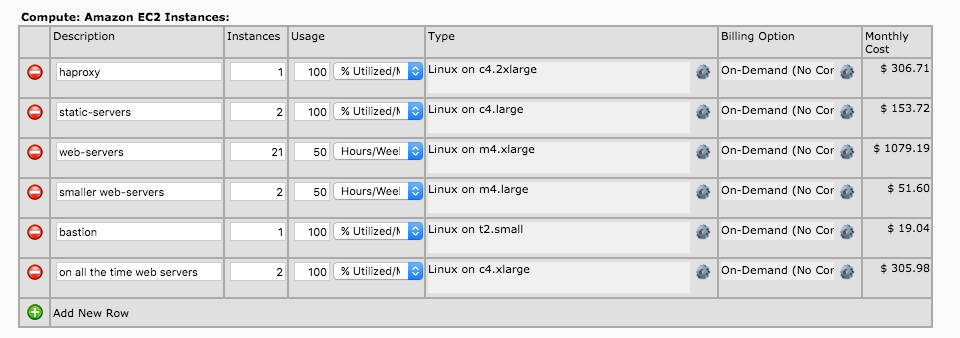Galaxy vs AWS
CONS
- Unknown Performance due to lack of load testing
- Decreased Devops Experience
- Coupled with Galaxy (what if their platform fails?)
- *Slightly* more expensive than Opsworks
- NO scheduling API
PROS
- No more server management. More time for software.
- Only customized environment built specifically for Meteor by the people who made Meteor. Most hosting options are optimized for last decade’s HTTP request-response paradigm.
- One line deploys, can easily integrate into our existing build process
- High availability fault tolerance
- Unlimited maximum containers
- Basic online support included
- Additional support available including 15-min response SLAs & 24x7x365 coverage
- Automatic load balancing and cluster management
- Zero downtime coordinated version updates
- Full logging and performance metrics
MONTHLY PRICING
Amazon OpsWorks Pricing - (23 servers @ 50 hrs/week + 2 servers on all the time): $1916.24
Galaxy Pricing - 23 web servers (@ 50 hrs/week) + 2 servers on all the time): $1691.20
For the 23 servers: At $0.28/hr = 0.28 * 200 * 283= $1288.00
For the 2 on all the time: At $0.28/hr = 0.28 * 720 * 2 = $403.20

NO Sunk Costs
Easy to try, just build dynamic settings.json
Simple SSL integration
Very easy to spin up prototypes
We can seamlessly move clients to it with a DNS propagation change.
DEPLOY_HOSTNAME=galaxy.meteor.com meteor deploy staging-iowa.edspring.org --owner ties --settings ./settings.json
What's next?
If the IA Opsworks migration were successful, to extract (almost)
completely from AWS we would need to:
- Move edSpring Monitor (dev, staging, prod stacks)
- Move Minnesota Opsworks Stack
- Move IHE Stack
- Move Training Stack
- Move SIF Import
- Move Vendor Import
- Move Eventing Server
- Move Rules Engine
There are some Pentaho/Window Servers left
Galaxy Vs AWS
By timh
Galaxy Vs AWS
- 675



